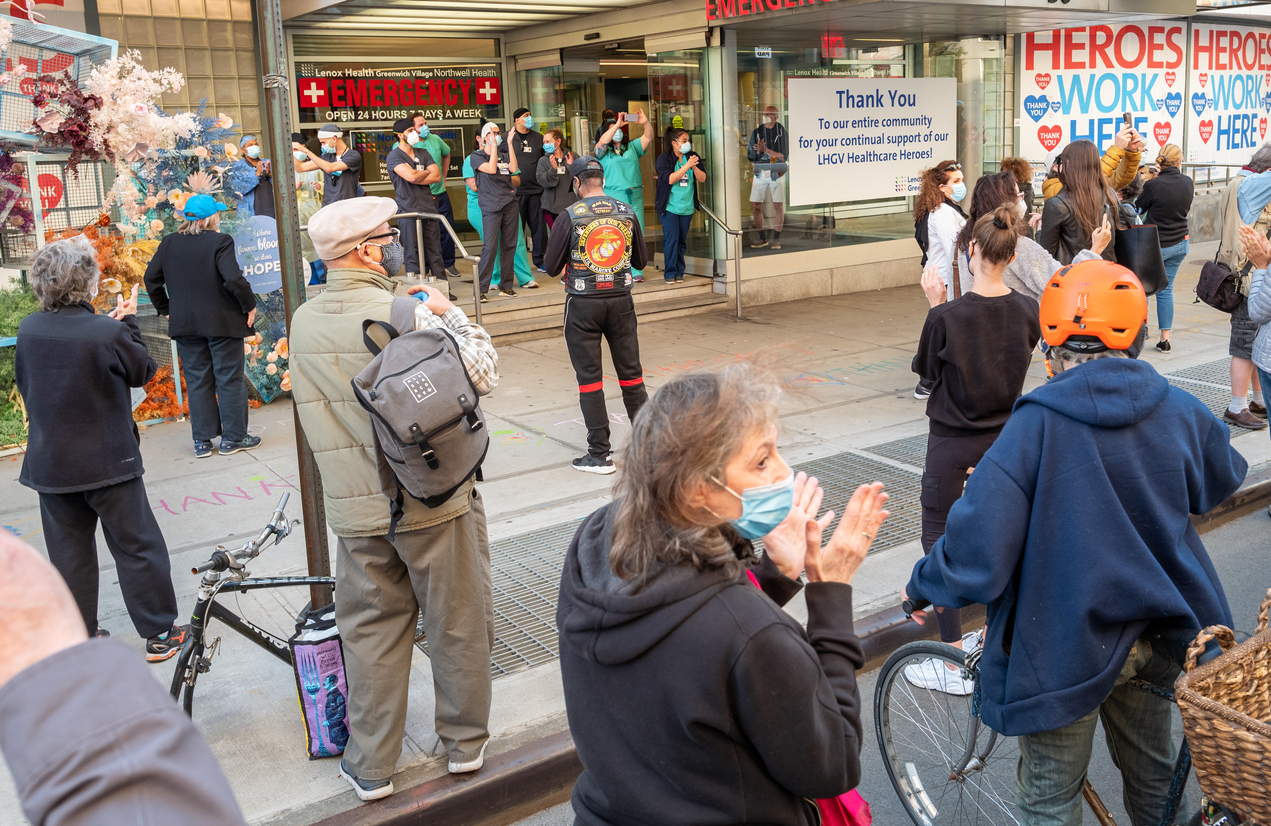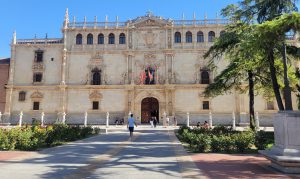Preparing NYC to respond to future epidemics, pandemics, and other health emergencies
New York, NY – In an unprecedented effort to ensure that New York City is prepared to meet future health emergencies like Covid-19, New York City Economic Development Corporation (NYCEDC) and Department of Health and Mental Hygiene announced today Columbia University and its Mailman School of Public Health, with the City University of New York Graduate School of Public Health and Health Policy (CUNY SPH) as a key partner, will launch and operate the New York City Pandemic Response Institute (PRI).
Joining Columbia and CUNY SPH in this effort is a broad consortium of non-profit public health entities, community-based organizations, industries and businesses, and a network of emergency health services delivery systems across New York City who will work with the Institute and with city agencies to prevent, prepare for, respond to, and recover from public health emergencies. A major focus of the PRI will be to address the current gaps in healthcare that disproportionately affect underserved communities in New York City.
“The Pandemic Response Institute, operated by Columbia University with key partner CUNY SPH, will play a critical role in preparing for future pandemics, and promoting equity in public health,” said Mayor Bill de Blasio. “Born out of New York’s quick action during the early days of the pandemic, this institute will put our hardest learned lessons from this pandemic to work so that when the next public health crisis emerges, New York City will not only be prepared, we will be ready to lead these global fights.”
“Columbia University with key partner CUNY SPH demonstrated to us a high level of expertise that was unmatched,” said NYCEDC President and CEO Rachel Loeb. “NYCEDC has every confidence these esteemed institutions and their partners will put New York City and all New Yorkers first. Keeping people safe and our economy open means we need an unprecedented public health response that is forward-looking and dedicated to addressing health disparities. NYCEDC is proud to help establish a Pandemic Response Institute that will be innovative and critical to our public health infrastructure.”
“When the COVID-19 pandemic began to impact the lives of New Yorkers, CUNY did not hesitate to find new and innovative ways to support our city and our students when they needed it most,” said Chancellor Félix V. Matos Rodríguez. “It is only fitting then, that CUNY SPH would be a key player in the development of the New York City Pandemic Response Institute, working with Columbia University and a large network of organizations, businesses and health agencies to enhance its efficacy as an agent of preparedness for the next public health emergency.”
NYCEDC set forth three strategic priorities when they solicited applications for this institute: enabling all New Yorkers to access needed health solutions; ensuring all New Yorkers receive the information they need to make decisions; and helping all New Yorkers and sectors build their capacities to prepare for and respond to future public health crises.
CUNY SPH will lead the efforts of the PRI in communications, community outreach, and workforce development and will contribute to other PRI efforts such as data science and systems modeling.
Participating CUNY SPH centers and institutes include the Center for Advanced Technology and Communication in Public Health (CATCH), Public Health Informatics, Computational, and Operation Research (PHICOR), the Center for Systems and Community Design, the Harlem Health Initiative, and the Urban Food Policy Institute, among others.
“The PRI gives CUNY SPH the opportunity to build on the Covid-19 response work that we’ve already been doing locally, nationally, and globally since the earliest days of the pandemic,” said Bruce Y. Lee, executive director of CATCH and PHICOR, and professor of health policy and management at CUNY SPH. “Through PHICOR’s systems modeling, the NYC Covid-19 Tracking Survey, the CHASING COVID national study, our 23-country survey of vaccine confidence and trust in government, and CONVINCE USA’s vaccine literacy efforts, among many others, we’ve been helping a broad range of communities and decision makers in NYC and around the world.”
“CUNY SPH has centered health equity and social justice in its mission since its founding,” said Ayman El-Mohandes, Dean of CUNY SPH. “As a public institution we prioritize partnerships with the not-for-profit and private sectors of NYC to address health challenges in our communities. We are delighted to be working with Columbia in this shared governance model to ensure the full participation of the members of the PRI consortium and community representatives across the city.
“We are thrilled to embark on the launch of the Pandemic Response Institute with our key partner, CUNY SPH and other collaborators,” said Wafaa El-Sadr, University Professor of Epidemiology and Medicine at Columbia’s Mailman School of Public Health, and director of ICAP and Columbia World Projects, who is leading the PRI. “The Pandemic Response Institute will create an unprecedented nexus for engagement, expertise, and resources from across our city and beyond that will enable us to equitably prepare, predict, prevent, detect, respond to, and recover from major health emergencies.”
With the aim of establishing New York City as a global model for public health preparedness, NYCEDC has charged the Columbia–CUNY SPH partnership with the following.
- Building or strengthening technologies and systems to support real-time data collection and sharing
- Driving cutting-edge research on public health innovation and creating capacity to rapidly scale technological solutions in future public health emergencies
- Piloting community-based partnership models and workforce training programs that improve emergency preparedness and advance health outcomes across all communities
- Centering racial equity in all activities of the Institute and addressing gaps in health infrastructure that have disproportionately caused harm to communities of color and others facing structural inequities
The PRI will benefit from the considerable strengths of its partner institutions and from the density, diversity, and creativity of the city itself to create a model of public and private sector coordination that is agile and responsive. Their combined efforts will do much to predict, prevent, and mitigate the effects of future public health threats, and provide all New Yorkers with the information, resources, and services they need to weather and recover swiftly from health emergencies.
___
About CUNY SPH
The City University of New York (CUNY) is the nation’s largest urban public university, a transformative engine of social mobility that is a critical component of the lifeblood of New York City. The CUNY Graduate School of Public Health and Health Policy (CUNY SPH) is committed to promoting and sustaining healthier populations in New York City and around the world through excellence in education, research, and service in public health and by advocating for sound policy and practice to advance social justice and improve health outcomes for all.
About Columbia University Mailman School of Public Health
Founded in 1922, Columbia’s Mailman School of Public Health has programs in New York City and in more than 100 other countries and is a leader in HIV/AIDS, mental health, environmental health, global health, and urban health. The School has a long history of engagement with and commitment to the health and well-being of New Yorkers. For decades, the School has trained generations of students and the public health workforce and partnered with New York City agencies, community-based organizations and other entities. The school has more than 20 research centers, including ICAP at Columbia – the center leading PRI at Columbia – the Center for Infection and Immunity and the Robert N. Butler Columbia Aging Center.
About NYCEDC
New York City Economic Development Corporation creates shared prosperity across New York City’s five boroughs by strengthening neighborhoods and creating good jobs. NYCEDC works with and for communities to provide them with the resources they need to thrive, and we invest in projects that increase sustainability, support job growth, develop talent, and spark innovation to strengthen the City’s competitive advantage. To learn more about our work and initiatives, please visit us on Facebook, Twitter, or Instagram.




